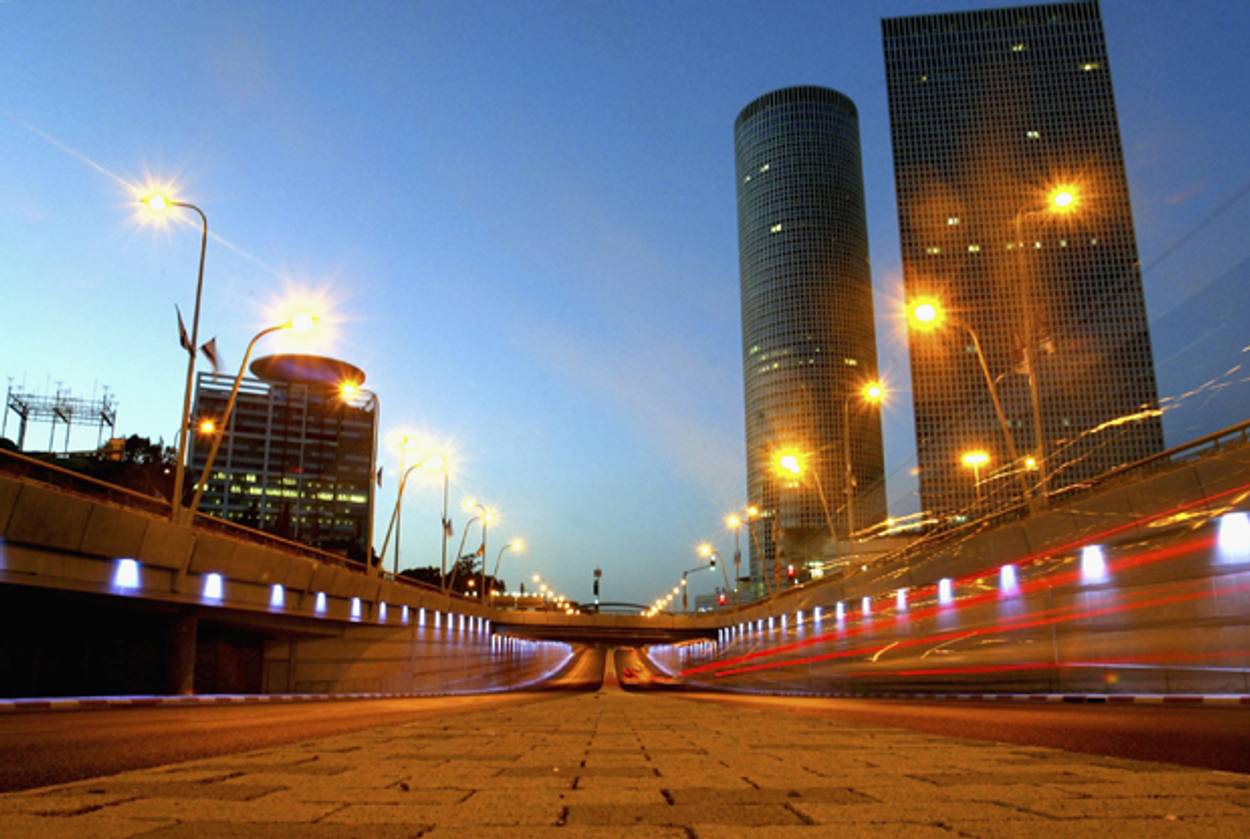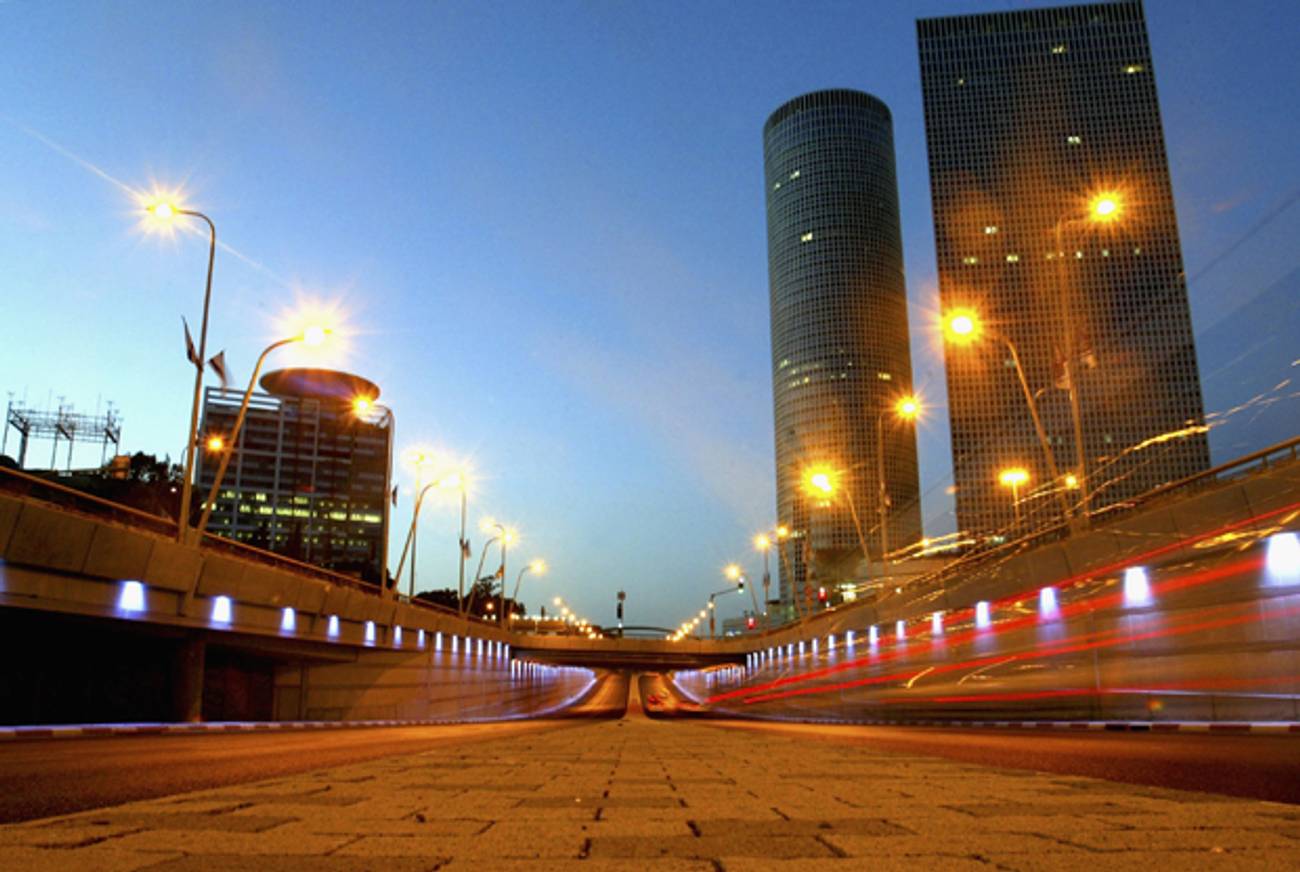Tel Aviv’s Annual White Night Festival Tonight
The all-night event features concerts, symposiums, and parties across the city




Ten years ago, in July 2003, UNESCO proclaimed the White City of Tel Aviv a World Heritage Site, praising it as a landmark of early-20th century architecture. The center of the city has the largest collection of buildings built in the International Style, better known as Bauhaus. More than 4,000 of those buildings were built in the 1930s by German Jewish architects who immigrated to the British Mandate of Palestine after the rise of the Nazis in Germany.
These buildings can be admired all year long, but since UNESCO’s proclamation 10 years ago, Tel Aviv has been celebrating its White City with White Night, an annual all-night music and art festival on the last Thursday of June. The festival isn’t limited to celebrating the city’s beautiful historical buildings, it also does everything in its power to promote the city’s catchy—and true—marketing slogan: “The city that never stops.”
If on most nights Tel Aviv’s center is busy and lively, during the White Night celebration it seems more crowded than Times Square on New Year’s Eve. This evening’s festival, the ninth of its kind, boasts more than 1,500 events all around the city–many free of charge, some for a nominal fee. Rabin Square will be turned into a giant silent disco; Yehudit Ravitz, the queen of Israeli mainstream rock, will perform a sunrise concert on the North Zuk Beach; a Bollywood dancing workshop will take place on Gordon beach; Habima Square will be the site of a ballroom-dancing extravaganza; a treasure hunt will transform the Tel Aviv Central Bus Station; performance art will fill the narrow passageways of old Jaffa; classic Israeli films will be screened at the Cinematheque—and that’s not even the half of it.
But Tel Aviv wouldn’t be Tel Aviv without a dose of good old protest. For the past five years an alternative “Black Night” has taken place on the same night as the main event, protesting the neglect of the city’s south and east. The social and political activists behind Black Night feel that the White Night doesn’t represent them; they’re angry about issues like the air-pollution from the central bus station and the fact that their taxes financed the grandiose renovation of Habimah National Theater, located in the city center, while the main institution in the south is Abu Kabir Prison.
“The ‘White Night’ is designed to glorify the satiated White City, located to the north of Begin Road,” say the Black Night organizers. “On the other edge of the city, the neglected and dilapidated one, we—the residents of the southern neighborhoods—will gather and celebrate for ourselves the ‘Black Night’—a night of culture and protest.”
This year the Black Night main event is a show by Yehuda Keisar, guitar hero of Israel’s 1970s Mizrahi music scene. That the entertainment they’re offering isn’t “white” is no coincidence, but an acute political statement.
The majority of Tel Aviv’s population, as well as people from all around the country and many tourists, will flock, as always, to the White Night festival, but nevertheless it seems the Tel Aviv-Yafo Municipality has taken the Black Night’s message to heart: This year’s festival press-release mentions that approximately 50 percent of the events will take place in the south of the city. The opening ceremony will be held, for the very first time, at Hatikva Market in Hatikva Quarter, a working-class neighborhood in southeastern Tel Aviv—far away from the bright White City buildings along Rothschild Boulevard and Bialik Street in the city center.
Dana Kessler has written for Maariv, Haaretz, Yediot Aharonot, and other Israeli publications. She is based in Tel Aviv.